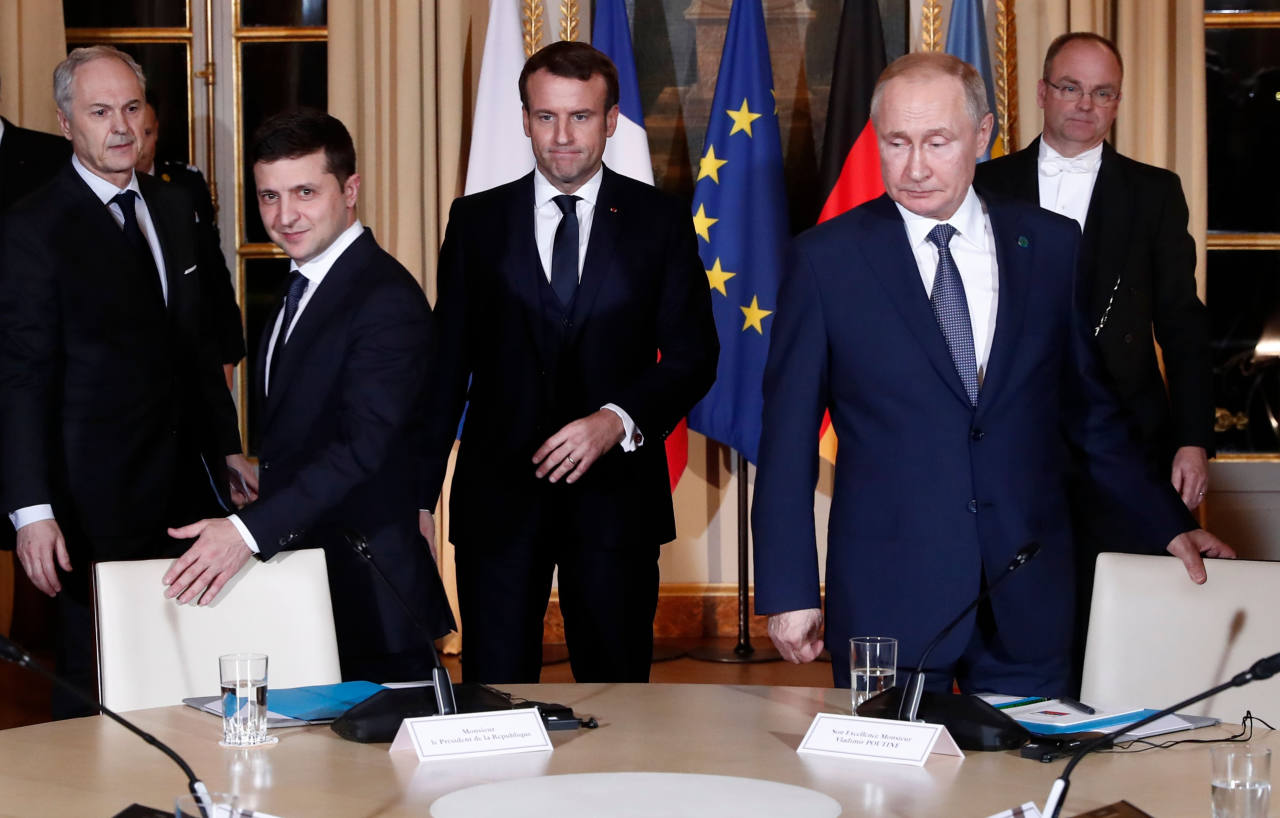Putin Calls Zelensky a Western Puppet. Can He Negotiate Peace?

The Complex Dynamics of a Potential Putin-Zelensky Meeting
The prospect of a direct meeting between Russian President Vladimir Putin and Ukrainian President Volodymyr Zelensky has become a focal point in the ongoing diplomatic efforts to resolve the conflict in Ukraine. This potential encounter, which could be arranged under the influence of former U.S. President Donald Trump’s peace initiatives, presents a complex web of political, strategic, and symbolic challenges for both leaders.
For years, Putin has portrayed Zelensky as an illegitimate figure, a puppet of Western interests who lacks the authority to represent Ukraine. This narrative has been central to justifying Russia's invasion and maintaining public support within Russia. A face-to-face meeting with Zelensky would directly contradict this carefully constructed image, potentially undermining the legitimacy of the war effort in the eyes of the Russian people and the elite.
Trump's push for such a meeting places Putin in a difficult position. On one hand, refusing to meet Zelensky could strain relations with the U.S., especially given the threat of additional sanctions. On the other hand, agreeing to a meeting risks damaging Putin’s political standing domestically. Russian officials have shown little interest in facilitating such a dialogue, with Foreign Minister Sergei Lavrov emphasizing the need for careful planning and some Russian figures dismissing Zelensky as unserious.
The idea of a meeting has gained momentum following recent discussions involving Trump, Zelensky, and European leaders. However, there is no indication that Moscow is actively working toward this goal. Putin has consistently maintained that any meeting should come after broader peace negotiations have taken place, emphasizing that it should serve as a formality rather than a starting point for talks.
Analysts suggest that Putin sees the war not merely as a conflict over Ukraine but as part of a larger confrontation with the West. He views the conflict as an opportunity to reassert Russia’s influence and challenge what he perceives as Western encroachment on his sphere of influence. This perspective makes any compromise with Zelensky more challenging, as it would require Russia to accept terms that may undermine its strategic objectives.
Zelensky, for his part, has long believed that direct engagement with Putin is essential to achieving peace. However, he has also faced criticism from Moscow for issuing statements that appear to rule out the possibility of a meeting. Despite this, Zelensky has shown openness to meeting without preconditions, even abandoning earlier demands for a ceasefire to facilitate dialogue.
The political stakes are high, with rising pressure from both Trump and European leaders. Moscow has responded by reinforcing its stance, with figures like former President Dmitry Medvedev and Foreign Ministry spokeswoman Maria Zakharova launching accusations against Zelensky. These efforts aim to justify Putin’s reluctance to meet and maintain the narrative that Zelensky is an unreliable and untrustworthy leader.
Ultimately, analysts believe that Putin is likely to avoid outright rejection of the meeting while also avoiding any meaningful progress. He may adopt a strategy of appearing open to dialogue while setting conditions that make a genuine agreement unlikely. For instance, Moscow may demand that Ukraine accept maximalist terms, including disarmament, political neutrality, and renouncing NATO aspirations, before considering any meeting.
This approach reflects a pattern of behavior that has characterized Putin’s interactions with the West. Rather than making concessions, he prefers to present himself as willing to negotiate while maintaining control over the terms of any agreement. As a result, the prospect of a meeting remains uncertain, with both sides navigating a delicate balance of diplomacy, politics, and ideology.
Post a Comment for "Putin Calls Zelensky a Western Puppet. Can He Negotiate Peace?"
Post a Comment